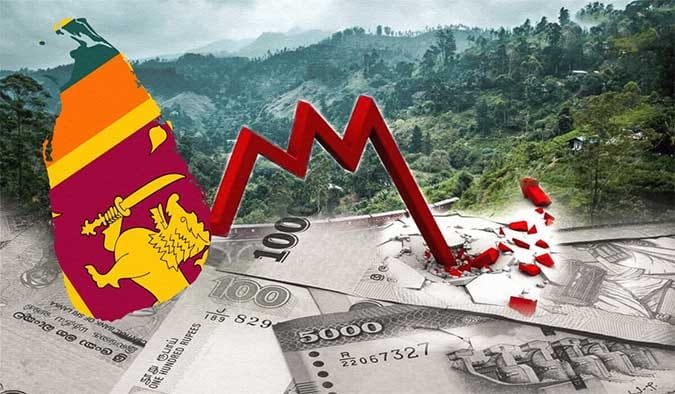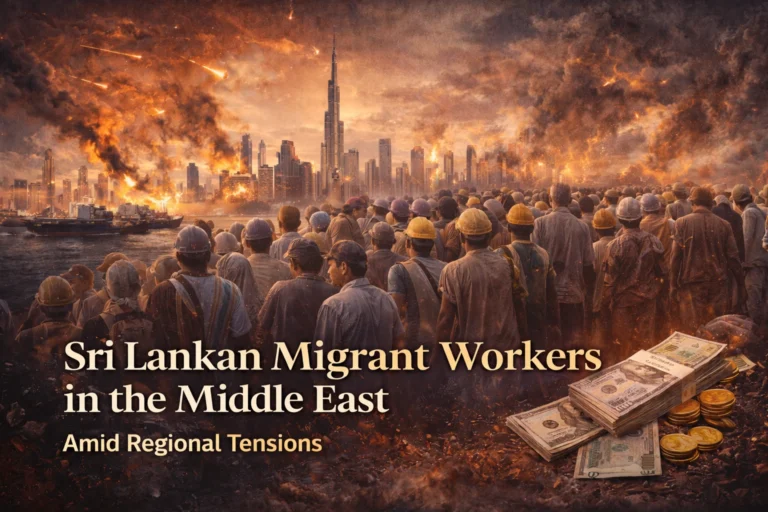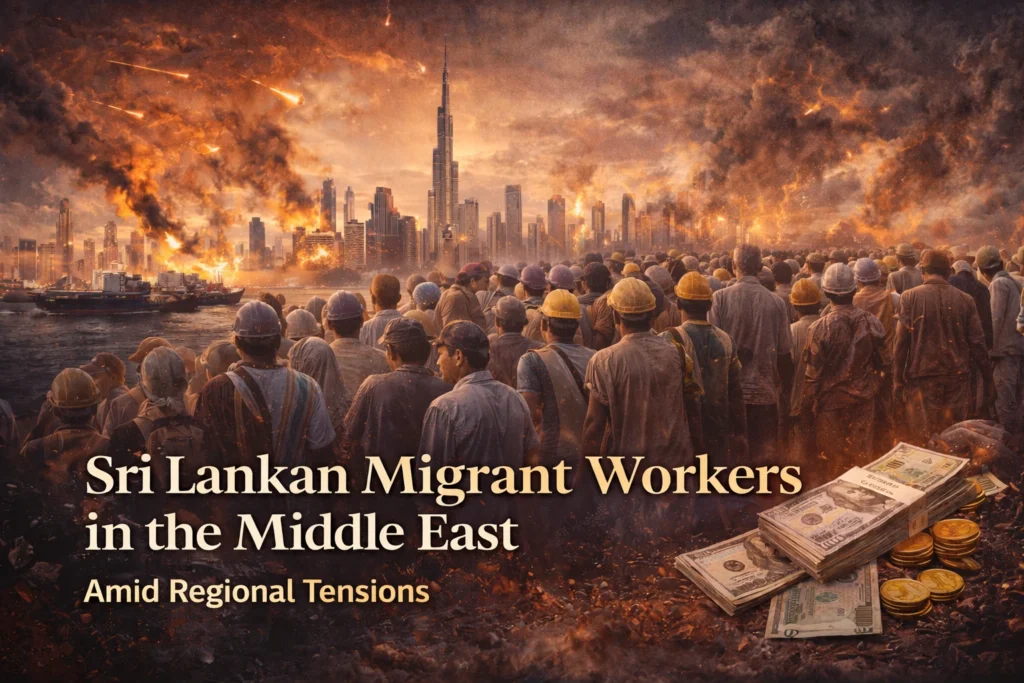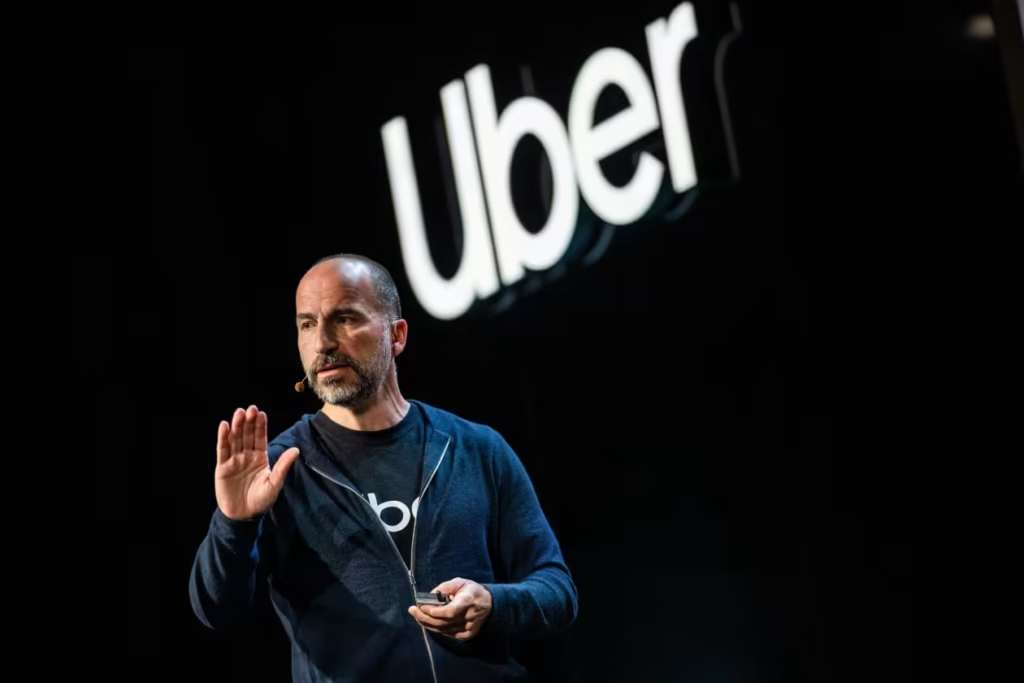Sri Lanka’s recent economic crisis has forced the nation to confront uncomfortable truths about its financial management, debt policies, and governance. Amidst calls for fiscal discipline, reforms, and international assistance, one issue remains both deeply entrenched and critically important: corruption.
For decades, corruption has quietly siphoned off public funds, undermined trust in institutions, inflated the cost of doing business, and reduced the quality of public services. It is not simply a matter of bad morals—it is an economic problem with a measurable price tag. If Sri Lanka is serious about achieving sustainable growth and rebuilding its economy, it must make genuine, systemic transparency and accountability the cornerstone of its recovery.
The True Cost of Corruption in Sri Lanka
Corruption imposes both direct and indirect costs on Sri Lanka’s economy.
Direct costs come from embezzled public funds, inflated government contracts, and procurement fraud. A road project that should cost Rs. 1 billion might cost Rs. 1.5 billion when “commissions” and bribes are added. That extra Rs. 500 million is money that could have built schools, hospitals, or improved water access.
Indirect costs are even more damaging over time. Investors demand higher returns to compensate for perceived risk in a corrupt environment. Foreign investors may avoid Sri Lanka altogether if they fear biased courts, bribery in approvals, or changing rules. This reduces foreign direct investment (FDI) inflows at a time when the country needs them most.
Public corruption also raises the cost of borrowing internationally. Creditors see corruption as a sign of poor governance, raising Sri Lanka’s risk profile and interest rates on debt. In other words, every dollar lost to corruption today will be repaid many times over tomorrow.
Finally, corruption worsens inequality. When public services are underfunded because money is stolen, the poor suffer most. Bribery in everyday transactions—getting a permit, avoiding harassment, or speeding up paperwork—penalises honest citizens and favours the well-connected.

Why Past Anti-Corruption Efforts Failed
Sri Lanka has not been blind to corruption. Over the years, successive governments have promised anti-corruption reforms. Yet results have often been cosmetic.
One reason is weak enforcement. Laws exist on paper, but prosecutions rarely follow, or drag on for years without conviction. Politically powerful individuals are often protected.
Another problem is political patronage. Appointments to public positions are used to reward loyalty rather than merit. This creates networks of obligation that resist reform.
Whistleblowers, who could expose wrongdoing, face serious risks and have little legal protection. Without safeguards, few are willing to come forward.
Finally, there is a cultural dimension. Petty corruption is often seen as normal or necessary. “Commissions” are treated as routine business practice. Changing this culture requires more than laws—it requires education and leadership by example.
The Link Between Transparency and Investment
Transparency is not just a moral goal—it is an economic strategy.
Investors—both foreign and domestic—want predictability, fair competition, and rule of law. If they fear bribes are needed for approvals, contracts will not be honoured, or tenders will be rigged, they will look elsewhere.
Other countries have shown the economic benefits of reducing corruption. Georgia, for example, undertook major anti-corruption reforms in the 2000s, digitising services, reforming the police, and improving procurement transparency. The result was improved investor confidence, faster GDP growth, and lower borrowing costs.
Sri Lanka is competing with many other emerging markets for FDI. Offering cheaper, more reliable, and more transparent services can be a selling point in a crowded field.
Building a Culture of Accountability
Real anti-corruption reform in Sri Lanka must go beyond slogans and committees. It needs to build a culture of accountability that lasts beyond any single government.
First, strengthen independent institutions. The Auditor General’s Department, the Commission to Investigate Allegations of Bribery or Corruption (CIABOC), and other watchdog agencies need real independence, adequate budgets, and freedom from political interference.
Second, protect whistleblowers. People willing to expose corruption should have strong legal protection and guarantees of confidentiality.
Third, use technology to reduce discretion. E-governance tools can automate approvals, payments, and procurement processes to reduce human involvement—and therefore opportunities for bribes. For example, an online permit system can remove the need to “speed up” paperwork at the counter with a bribe.
Fourth, encourage civil society oversight. Independent media, NGOs, and citizen watchdog groups play a vital role in exposing wrongdoing and monitoring government performance. A free and critical press is a powerful anti-corruption tool.
Finally, invest in education. Long-term change requires teaching civic responsibility and ethical behaviour from school onwards. This cultural shift will take time but is essential.
Policy Recommendations for Sri Lanka
For anti-corruption reform to work, it must be practical, enforceable, and credible. Here are some realistic policy steps Sri Lanka can pursue:
Enforce existing anti-corruption laws vigorously, regardless of political connections.
Strengthen the independence of institutions like the Auditor General and Bribery Commission.
Mandate transparency in public procurement, including publishing tender details online.
Pass and enforce strong whistleblower protection laws.
Invest in e-governance systems to digitise approvals, payments, and permits.
Engage civil society in monitoring and oversight through open data and partnerships.
These measures do not require reinvention of the wheel. Many have been implemented successfully elsewhere. What is needed is political will.
Sri Lanka’s economic crisis has highlighted the urgent need for reform. Debt restructuring, fiscal discipline, and monetary policy adjustments are all necessary. But they will not be enough if the underlying rot of corruption is not addressed.
Corruption is not an abstract moral failing—it is a concrete economic cost, one that the country can no longer afford.
True economic recovery will come only when Sri Lanka builds a foundation of transparency, accountability, and trust. That is not a luxury for prosperous nations—it is a precondition for joining them.













